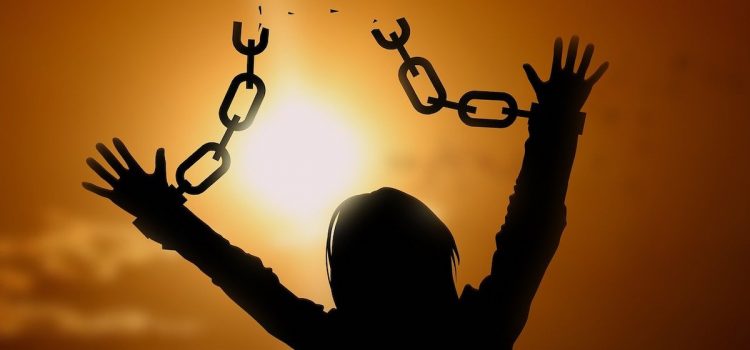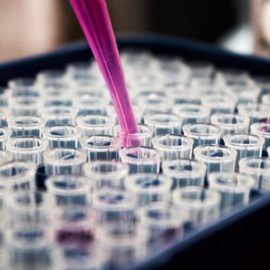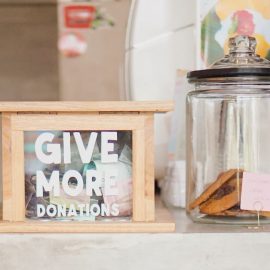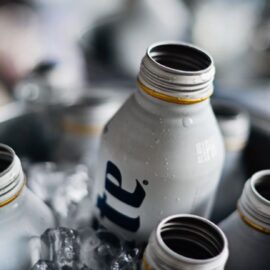

This article is an excerpt from the Shortform book guide to "This Naked Mind" by Annie Grace. Shortform has the world's best summaries and analyses of books you should be reading.
Like this article? Sign up for a free trial here.
Have you tried treatment programs for alcoholism, only to find that you’re still looking for solutions? Is drinking in moderation the way to go?
Annie Grace says that, to break free from alcohol dependence, you must see alcohol as it truly is: an addictive drug that poisons your mind and body. When you change your beliefs, you’ll overcome addiction by no longer even wanting to drink, and you’ll enjoy a fulfilling life free of alcohol.
Continue reading to learn how to quit drinking without rehab or formal treatment programs.
Become Sober Without Formal Treatment
If you’re wondering how to quit drinking without rehab and hoping it can truly work, you’ll be encouraged by Grace’s contention: It’s not only possible, it’s preferable. According to her, quitting alcohol by yourself, without any formal treatment, is much more effective than traditional recovery programs.
Popular programs like Alcoholics Anonymous (AA) make you feel as though you have to accept sobriety, which makes you feel powerless and creates a sense that you’re losing something valuable by not drinking. However, when you choose to quit of your own volition and by changing your unconscious beliefs, you feel more at peace with your decision and are less likely to want to drink again. You choose rather than accept living without alcohol because you know that alcohol has nothing good to offer and that life is better without it.
| Can You Mature Out of Addiction? Some experts argue that quitting alcohol on your own is not only more effective than traditional recovery programs like Alcoholics Anonymous, but it’s often the natural outcome of alcohol addiction. They call this “maturing out of addiction” and explain that, as people grow older, their brains become more risk averse. So, high-risk behaviors such as drinking alcohol become less attractive. This, along with other life changes such as getting a new job or having children, enables many people to quit without needing formal treatment. In addition to changing your unconscious beliefs to recover spontaneously from alcohol, they also suggest you build up your resources and use strategies that activate your prefrontal cortex. For example, you can try “urge surfing,” which entails waiting out your cravings for 10 minutes. You can also stay busy with other activities to distract yourself and find alternative ways to soothe yourself instead of using alcohol (such as treating yourself to a nice meal or a massage). |
Commit to Quitting Alcohol
You might wonder whether you can have the occasional drink instead of quitting alcohol completely. However, Grace argues that it’s better to commit to quitting alcohol completely than to drink moderately. She provides several reasons:
First, alcohol is an addictive drug that gradually changes your brain. You can’t tell when you’ll become physically dependent on alcohol. Because you can’t control how your brain reacts to alcohol, moderation is hard to achieve.
(Shortform note: Many addiction experts agree with Grace that quitting alcohol completely is the safest approach and that anyone who drinks is at risk of developing an addiction. However, they argue that moderation can be a good first step, or even long-term goal, for people who want to quit alcohol. They say moderation should be an option because alcohol addiction is complex—people’s experiences differ, and they struggle with different alcohol-related problems. This option, however, is most suitable for people with less severe alcohol problems who haven’t been physically addicted to alcohol or other drugs.)
Second, Grace argues that decision-making is a draining and stressful mental activity. When you drink moderately, you must constantly decide when and how much to drink. Moreover, alcohol impairs your judgment and makes it easier to lose control of your drinking. By making a firm commitment to stop drinking, you free yourself from the ongoing dilemma of whether to drink or not.
(Shortform note: In The Willpower Instinct, Kelly McGonigal explains why making decisions drains your mental energy: It requires your brain to go into pause-and-plan mode, which activates your higher-level thinking and interrupts the impulsive instincts of your fight-or-flight response. According to McGonigal, using our pause-and-plan mode and exercising willpower takes a lot of energy. When the glucose that fuels your brain drops, your brain switches off higher-energy functions like your willpower. She says this is why most people have higher self-control in the mornings and lower self-control in the evenings—which is also when people are more likely to drink alcohol.)
Find Pleasure in Abstinence
Once you’ve challenged your unconscious beliefs and debunked the myths about alcohol, you should no longer have a desire to drink. All that’s left to do is to make the commitment and quit drinking. Once you decide to quit alcohol, you might wonder how you can stay sober when other people are drinking around you. According to Grace, you don’t need to avoid settings where alcohol is present. All you must do is remember the harmful truths of alcohol and addiction. When you remember the true nature of alcohol, you’ll realize that giving it up isn’t a sacrifice but a pleasure, and you won’t even feel tempted to drink.
(Shortform note: To remind yourself that alcohol is harmful, consider creating positive affirmations that refute the unconscious beliefs you had about drinking. In Manifest, Roxie Nafousi defines positive affirmations as statements that promote positive beliefs and explains how to create them: Think of an unhelpful belief and state the opposite. For example, if you think alcohol gives you confidence, your affirmation might be “I have the strength and courage to overcome any challenge and achieve my goals without alcohol.” When you recite your affirmations regularly, they’ll gradually replace your negative beliefs, Nafousi writes.)
To quit drinking without formal treatment and remind yourself that life is better without alcohol, consider some of Grace’s suggestions.
1. Accept that you have an emotional or physical dependence on alcohol. Alcohol is a drug that affects your mind and body. Depending on your level of dependence, you may experience withdrawal symptoms that can be difficult to deal with. If you’re struggling with withdrawal, Grace recommends you seek medical help or go to a rehabilitation center.
(Shortform note: Acknowledging that you have a dependence on alcohol can be hard to do. If you’re struggling to find acceptance of your alcohol addiction, consider joining a support group. Also, quitting alcohol abruptly can cause severe withdrawal symptoms, such as seizures, so many experts advise you to consult a medical professional before you do. If you’re worried about these risks, you can consider seeking a professional drug detox program, which can help you ease withdrawal symptoms.)
2. Accept that alcohol does nothing good for you. Grace urges you to regularly challenge your unconscious beliefs about alcohol. When you recognize that alcohol has only caused pain and that being sober enhances your life, you’ll eliminate your desire to drink altogether. When you view alcohol as the dangerous and harmful substance it is, you’ll find it much easier to live without it.
(Shortform note: In addition to dismantling unhealthy beliefs about alcohol, it may also help to build up healthy beliefs about yourself. In Radical Acceptance, Tara Brach writes that addiction stems from the desire to escape feelings of inadequacy. She encourages you to accept yourself for who you are, including your imperfections. By cultivating self-worth and fully embracing who you are, you’ll realize you don’t need alcohol or any other substance to feel happy, fulfilled, and successful.)
3. Start living life without alcohol. You may feel uncertain about quitting alcohol, but Grace writes that that’s normal. You just have to commit to not drinking, even if only for a period of time. When you do, you’ll discover the benefits of living alcohol-free and recognize that life is better without alcohol.
(Shortform note: To give yourself some extra support as you embark on your alcohol-free journey, some experts recommend you track your sobriety using recovery apps. These apps can provide you with accountability, help you see your progress, and boost your motivation during difficult times.)
Exercise: Question Your Unconscious Beliefs About Alcohol
According to Grace, your unconscious beliefs about alcohol can make it hard to commit to sobriety. Reflect on these beliefs and whether there’s any truth behind them.
- Describe your drinking habits. When, where, and why do you typically drink alcohol?
- What is one unconscious belief that might influence your drinking habits? For example, if you drink alcohol when you come home from work, you might unconsciously believe that alcohol relieves stress.
- Grace argues that your beliefs about alcohol are often shaped by the society you grow up in. What do you think has influenced this belief you have about alcohol? For instance, perhaps your favorite TV show portrays characters drinking to relieve stress after work.
- How does drinking actually make you feel? Does alcohol provide you with the benefits you hope to get from it?
- Instead of drinking, what can you do to satisfy your needs or desires? For example, you could take a walk or do a meditation practice to relieve stress.

———End of Preview———
Like what you just read? Read the rest of the world's best book summary and analysis of Annie Grace's "This Naked Mind" at Shortform.
Here's what you'll find in our full This Naked Mind summary:
- The real reason why it's so hard to quit drinking
- How alcohol affects your brain and body and leads to addiction
- How to break free from alcohol dependence by changing your mindset






